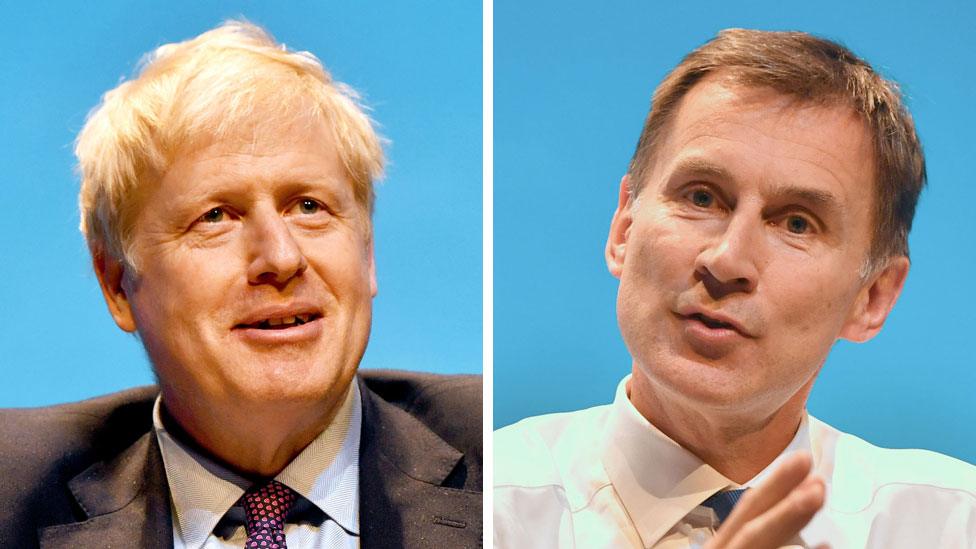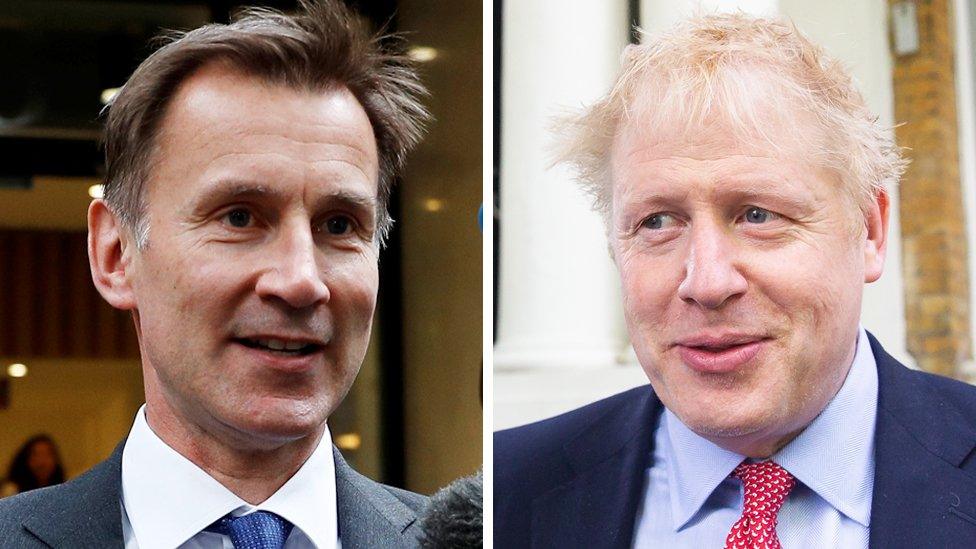Is it OK to tell someone to 'man up'?
- Published

According to the Oxford English Dictionary, to "man up" is to "demonstrate toughness or courage when faced with a difficult situation, external".
By linking those admirable qualities with men, the phrase is viewed by some as sexist.
So when Foreign Secretary Jeremy Hunt used it to try to get rival Boris Johnson to take part in a TV debate, he was quickly criticised for being "archaic" and "damaging" to young boys and girls.
Mr Hunt wrote in the Times, external that Mr Johnson should not be "a coward", "man up", and take part in the special programme on Sky News.
Michael Conroy - whose organisation Men At Work, external helps boys and young men deal with issues around masculinity and feminism - said the use of the phrase was "disappointing".
"Today, tomorrow and the day after, I'll be talking to young men about how phrases like 'man up' are harmful and asking them what they think about it," he said.
"But the potential future prime minister has given it a green light and that's really, really counter-productive.
"There's a real push, it seems at the moment, about male mental health, about acknowledging vulnerability, but then we just keep coming back to these high-profile voices using careless phrases."
Dr Anna Notaro, senior lecturer in media theory at the University of Dundee and UCU Scotland equality officer, said the comment was "deeply disheartening".
"One might expect from someone in that position a more sophisticated understanding of the problems with common phrases like that," she added.
Dr Notaro cited a YouGov report, external showing 61% of Britain's young men feel pressured to "man up" as a result of damaging gender stereotypes.
"In this context a term like 'man up' is harmful as it validates archaic attitudes towards masculinity," she added.
On Twitter, some users - including journalist Mariella Frostrup - questioned the meaning of the term "man up".
Allow X content?
This article contains content provided by X. We ask for your permission before anything is loaded, as they may be using cookies and other technologies. You may want to read X’s cookie policy, external and privacy policy, external before accepting. To view this content choose ‘accept and continue’.

However, others have defended Mr Hunt, saying his comment was "relatively harmless".
Richard Joy, founder of the Recovering Man website, external, believes the criticism of Mr Hunt's comment is politically motivated.
"The context in which he used it was regarding Boris debating him, so the implication was to be open to criticism, courageous and strong as a leader - fine traits for a man in my eyes," he said.
Mr Joy said the view of masculinity as something "rigid and anxiety-inducing" was not always correct, and that a broader definition was needed.
"If you're open to seeing masculinity in a broader definition than the one we tend to gravitate towards these days, 'man up' is a positive term."
But Kate Halls, a mother from Derbyshire, said she was "disgusted" by Mr Hunt's language.
Allow X content?
This article contains content provided by X. We ask for your permission before anything is loaded, as they may be using cookies and other technologies. You may want to read X’s cookie policy, external and privacy policy, external before accepting. To view this content choose ‘accept and continue’.

"It's a phrase I would never want anyone to utter to my son," she said.
"It's stunning that a man vying for leadership uses such archaic, damaging, gender-stereotypical language.
"His uttering that phrase undermines the work so many people, organisations and communities are doing to deal with toxic gender bias and labelling in society."
Mr Hunt declined to comment on his use of the phrase.
- Published24 June 2019

- Published24 June 2019

- Published19 October 2018
